List your propertySupportTrips
Members save 10% or more on over 100,000 hotels worldwide when you're signed in
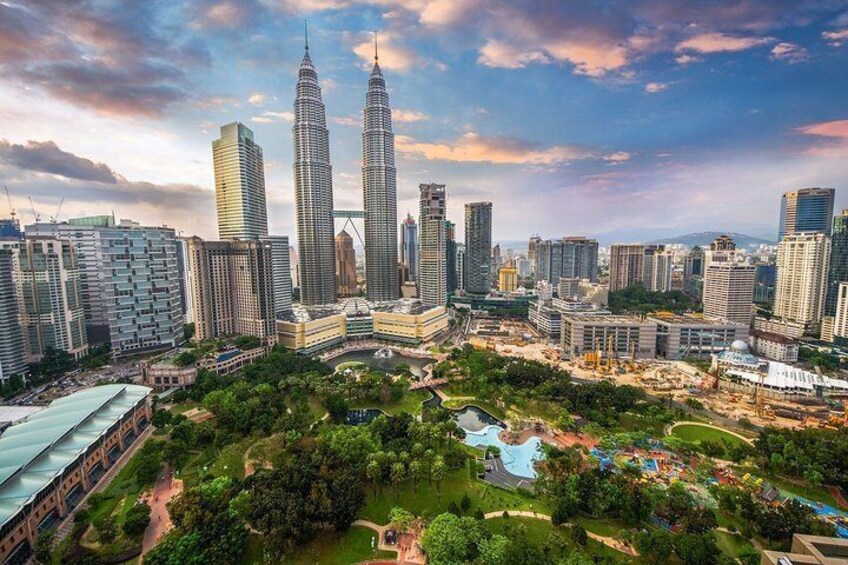
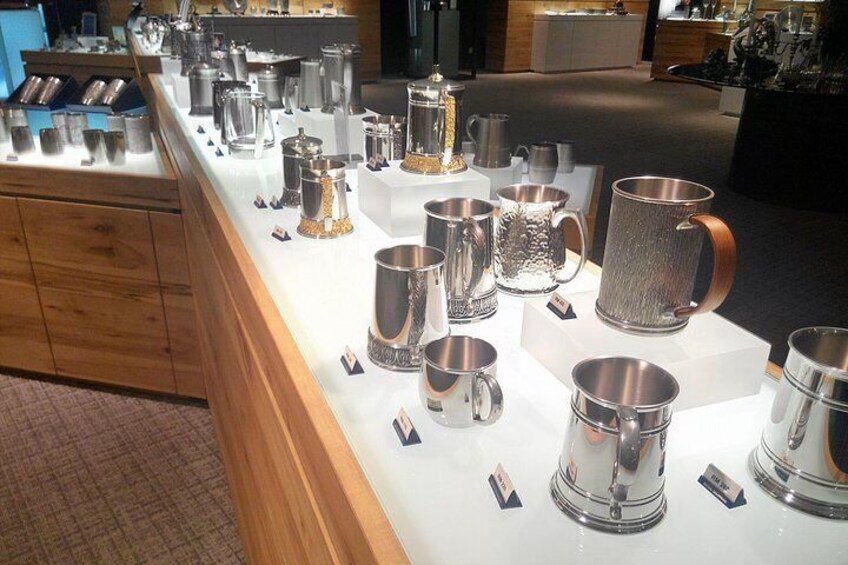
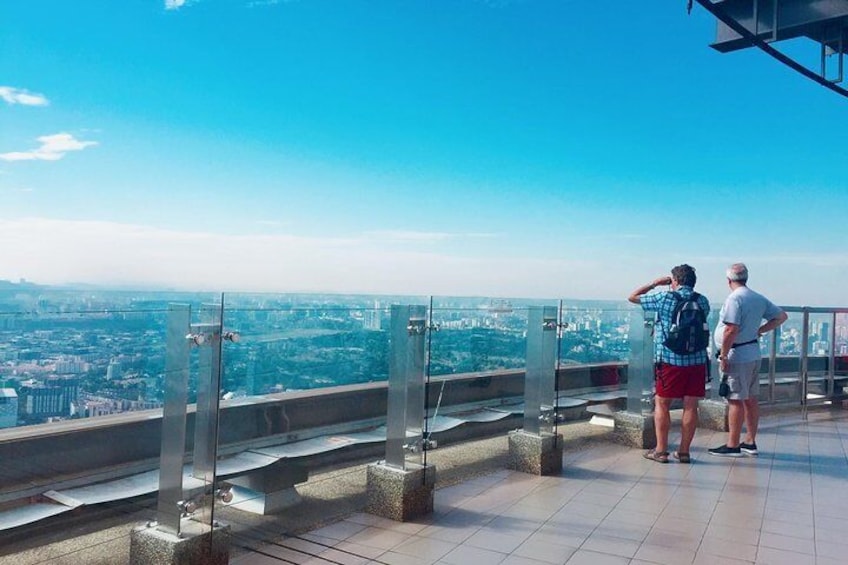
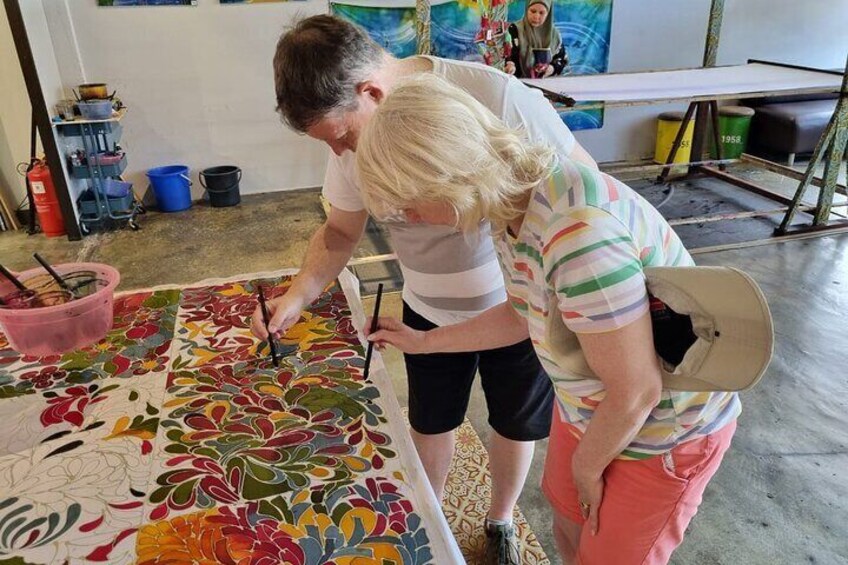
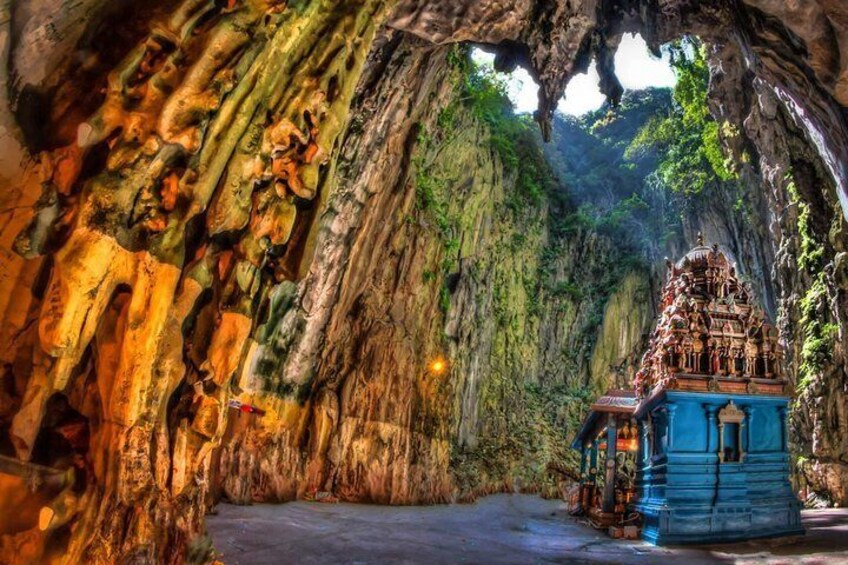
Kuala Lumpur Full Day Highlights with 23 Most Iconic Locations
By Malaysia Tours by Travel Yamu
Free cancellation available
per adult*
*Get a lower price by selecting multiple adult tickets
Features
- Free cancellation available
- 8h
- Mobile voucher
- Instant confirmation
- Selective hotel pickup
Overview
This full-day Kuala Lumpur sightseeing tour showcases the best of the city could offer. Experience the energy of Independence Square and revel at the height of the Petronas Twin Towers(photo stop). Explore the streets of Little India and the stalls of the local craft center before enjoying a guided tour of Batu Caves Hindu temple—one of the city’s architectural masterpieces!
- Explore the past, present, and future of Kuala Lumpur while withness the breathtaking view of Kuala Lumpur
- Drive to the holy Hindu shrine of the Batu Caves and the famous Twin Towers and KL Tower
- Visit the main landmarks of the Kuala Lumpur city on this incredible 8 hours tour
- Take some beautiful pictures with a mix of sophisticated and colonial landmarks within the city
Activity location
- Batu Caves
- Gombak
- 68100, Batu Caves, Selangor, Malaysia
Meeting/Redemption Point
- MATIC
- 109 Jalan Ampang
- 50450, Kuala Lumpur, Wilayah Persekutuan Kuala Lumpur, Malaysia
Check availability
KL Full Day Tour
- 8h
- English
KL Full Day Tour
Pickup included
Language options: English
Starting time: 9:30
Price details
RM 1,261.72 x 1 AdultRM 1,261.72
Total
* Select 6 adult tickets to get our lowest price of RM 251.51 per adult
Until Wed, 1 May
KL Full Day Tour With KL Tower
- 8h
- English
KL Full Day Tour With KL Tower
Pickup included
Language options: English
Starting time: 9:30
Price details
RM 1,336.24 x 1 AdultRM 1,336.24
Total
* Select 6 adult tickets to get our lowest price of RM 326.02 per adult
Until Wed, 1 May
What's included, what's not
- Private transportation
- English Speaking Driver
- Admission to KL Tower Observation Deck (if KL Tower option selected)
- Air-conditioned vehicle
- Hotel pickup and drop-off (selected hotels only)
- Lunch
- Gratuities
- Surcharge of USD 10 per person for pickup outside 5km radius from the city center is applicable
Know before you book
- Infants and small children can ride in a pram or stroller
- Public transportation options are available nearby
- Infants are required to sit on an adult’s lap
- Suitable for all physical fitness levels
- An additional surcharge of USD 10 per person for hotel pickup outside 5km radius from the city center is applicable and payable on the day of your activity.
Activity itinerary
Batu Caves
- 30m
Make your way to the famed Batu Caves where you’ll see an impressive gold statue of Lord Murugan towering some 140 feet (42.7 meters) high. Climb the 272 steps to the top of the hill where you’ll find a stunning Hindu shrine, incredible views, and one of Kuala Lumpur’s most favored destinations for travelers
Istana Negara
- 10m
Photo stop at the main entrance only, tourist are not permitted to enter
The Istana Negara (English: National Palace) is the official residence of the Yang di-Pertuan Agong, the monarch of Malaysia. It is located along Jalan Tuanku Abdul Halim (formerly Jalan Duta) near Taman Duta, northwestern Kuala Lumpur. The palace opened in 2011 and replaced the old Istana Negara which was located at a different compound in central Kuala Lumpur.
The palace complex has an area of 97.65 hectares, 22 domes, and is split into three main portions: the Formal Component, Royal Component and Administration Component.
The whole palace complex has 3 main entry points from Jalan Duta, Changkat Semantan and Jalan Sri Hartamas 1 which are named as Pintu 1 Istana Negara (Gate 1 of Istana Negara), Pintu 2 Istana Negara (Gate 2 of Istana Negara) and Pintu 3 Istana Negara (Gate 3 of Istana Negara) respectively.
Malaysian Houses of Parliament
- 10m
The Malaysian Houses of Parliament (Malay: Bangunan Parlimen Malaysia), is a building complex where the Malaysian Parliament assembles. The structure is located at the Lake Gardens in Kuala Lumpur, close to the Malaysian National Monument.
The complex comprises two parts, a 3-story main building and a 17-story 77-metre-tall tower.[1] The main building hosts the Dewan Rakyat (House of Representatives) and the Dewan Negara (Senate) while representatives' offices are located in the tower.
The complex was constructed during the period when the federal government was based in Kuala Lumpur. While the vast majority of government operations has moved to Putrajaya since the late-1990s, the parliament continues to convene at Kuala Lumpur's Parliament House.
National Monument
- 10m
The Tugu Negara is a sculpture considered as a national monument that commemorates those who died in Malaysia's struggle for freedom, principally against the Japanese occupation during World War II and the Malayan Emergency, which lasted from 1948 until 1960. It is located in the Federal capital, Kuala Lumpur. The Malaysian Houses of Parliament is situated near the monument.
It is the world's tallest bronze freestanding sculpture grouping. Until 2010, on 31 July on Warriors' Day, the Yang di-Pertuan Agong, the Prime Minister, and the heads of the Malaysian Armed Forces and the Royal Malaysia Police pay their respects to the fallen heroes by laying garlands at the monument. Warriors' Day is now commemorated on Merdeka Square, after ultra-conservative religious bureaucrats declared the sculpture to be idolatrous.
Perdana Botanical Garden
- 20m
The Perdana Botanical Garden, formerly known as Taman Tasik Perdana or Lake Gardens, is situated in the Heritage Park of Kuala Lumpur. It has always been a part of the green lung of the city and has a history of over a decade. Originally created as part of a recreational park but planted with collections of tropical plants, the garden have been rehabilitated and turned into a Botanical Garden. The garden have not only botanical collections but also house features that give the visitors the ambiance of being in a tropical rainforest, despite being in the middle of a bustling metropolis.
National Mosque (Masjid Negara)
- 20m
The National Mosque of Malaysia (Malay: Masjid Negara Malaysia) is a mosque in Kuala Lumpur, Malaysia. It has a capacity for 15,000 people and is situated among 13 acres (53,000 m2) of gardens. Its key features are a 73-metre-high (240 ft) minaret and a 16-pointed star concrete main roof. The umbrella, synonymous with the tropics, is featured conspicuously – the main roof is reminiscent of an open umbrella, the minaret's cap a folded one. The folded plates of the concrete main roof are a creative solution to achieving the larger spans required in the main gathering hall. Reflecting pools and fountains spread throughout the compound. Completed in 1965, the mosque is a bold and modern approach in reinforced concrete, symbolic of the aspirations of a then newly independent nation.
Merdeka Square
- 10m
Independence Square (Malay: Dataran Merdeka) is a square located in Kuala Lumpur, Malaysia. It is situated in front of the Sultan Abdul Samad Building. It was formerly known as the Selangor Club Padang or simply the Padang (meaning "field" in Malay) and was used as the cricket green of the Selangor Club (now the Royal Selangor Club). It was here that the Union Flag was lowered and the Malaysian flag hoisted for the first time at midnight on 31 August 1957. Since then, the Independence Square has been the usual venue for the annual Independence Day Parade.
Sultan Abdul Samad Building
- 10m
The Sultan Abdul Samad Building (Malay: Bangunan Sultan Abdul Samad) is a late-nineteenth century building located along Jalan Raja in front of the Dataran Merdeka (Independence Square) and the Royal Selangor Club in Kuala Lumpur, Malaysia. The building originally housed the offices of the British colonial administration, and was known simply as Government Offices in its early years. In 1974, it was renamed after Sultan Abdul Samad, the reigning sultan of Selangor at the time when construction began.
The River of Life
- 10m
The River of Life is one of the most iconic parts of Kuala Lumpur. Located near Masjid Jamek Sultan Abdul Samad, the oldest mosque in the city, it is a convergence point of two rivers: the Klang River and the Gombak River.
Kuala Lumpur City Gallery
- 20m
This small museum, is an excellent starting point for visitors to learn about the history of KL, in an engaging and informative fashion. As well as a photographic record of the city, entitled "Old Kuala Lumpur", the ground floor has a scale model of Merdeka Square. Another scale model, The Spectacular City Model Show, this time of modern KL, is on the first floor. The museum is housed in an attractive neo-Renaissance structure, which has performed several functions since it was built in 1899, including being the main colonial printing office, and more recently, a public library.
Malayan Railway Administration Building
- 10m
The Kuala Lumpur railway station is a railway station located in Kuala Lumpur, Malaysia. Construction began in 1910 and was fully completed in 1917.[1] It replaced an older station on the same site, the station was Kuala Lumpur's railway hub in the city for the Federated Malay States Railways and its successor Keretapi Tanah Melayu (English: Malayan Railways), before Kuala Lumpur Sentral assumed much of its role in 2001. The station is notable for its architecture, adopting a mixture of Eastern and Western designs.
The station is located along a road named Jalan Sultan Hishamuddin, previously known as Victory Avenue, which in turn was part of Damansara Road. The station is located closely to the similarly designed Railway Administration Building, as well as the National Mosque and Dayabumi Complex. The Pasar Seni station is located 400 metres away, across the Klang River.
National Museum
- 10m
Photo stop only, admission not included.
Located in the heart of the city of Kuala Lumpur, the National Museum (Muzium Negara) built in the style of a Malay palace is the guardian of the nation’s history. The recently upgraded galleries present an exciting and innovative approach to exploring the history of Malaysia from prehistoric times to the present. Muzium Negara was officially opened by His Majesty, the Third Yang di-Pertuan Agong, Tuanku Syed Putra Al-Haj Ibni Al-Marhum Syed Hassan Jamalullail on 31st August 1963. The museum building, apart from being stimulative from the point of tradition also presents a panoramic view of the development of Malaysia, as depicted by the two large murals of Italian glass mosaic, which extend across the museum facade. Muzium Negara is a repository of Malaysia's rich cultural and historical heritage.
Little India Brickfields
- 30m
Brickfields is situated within Kuala Lumpur. The area is the biggest Little India in Malaysia, and its streets are filled with Indian shops that sell Indian clothing, provisions and food. This Little India of the federal capital has a high percentage of Indian residents and businesses, contributing to its name. Brickfields is emerging as a hot property area due to the construction of KL Sentral.
Thean Hou Temple
- 20m
The Thean Hou Temple (Chinese: 乐圣岭天后宫/樂聖嶺天后宮) is a six-tiered temple of the Chinese sea goddess Mazu located in Kuala Lumpur, Malaysia. It is located on 1.67 acres (6,758 m2) of land atop Robson Heights on Lorong Bellamy, overlooking Jalan Syed Putra. It was completed in 1987 and officially opened in 1989. The temple was built by Hainanese living in Malaysia and the property belongs to and is run by the Selangor and Federal Territory Hainan Association (Malay: Hainan Selangor and Wilayah Persekutuan; Chinese: 雪隆海南会馆/雪隆海南會館). It is one of the largest temples in Southeast Asia.
Chinatown
- 30m
Kuala Lumpur's Chinatown is the hub of food, accessories, clothing, and everything a tourist could ask for. It is one of the most colorful and vibrant areas of Kuala Lumpur. This place is a paradise for shopaholics and gourmands and provides ample sightseeing opportunities, such as the captivating Buddhist Temples, art galleries, traditional food, and coffee houses.
Chinatown is also referred to as ’Chee Cheong Kai’ (Starch Factory Street) which a Chinese opened at the street to prevent his fellow countrymen from going back to their home country after the Civil War abandoned the mills they worked at. Spread on the entire street. Chinatown in Kuala Lumpur is still bright and glowing after sunset, it is a space which never sleeps.
Central Market Kuala Lumpur
- 20m
Central Market Kuala Lumpur is located at Jalan Tun Tan Cheng Lock (Foch Avenue) and the pedestrian-only section of Jalan Hang Kasturi (Rodger Street), a few minutes away from Petaling Street and next to Klang River. It was founded in 1888 and originally used as a wet market while the current Art Deco style building was completed in 1937. It has been classified as a Heritage Site by the Malaysian Heritage Society, and it is now a landmark for Malaysian culture and heritage.
Guan Di Temple Kuala Lumpur Malaysia
- 10m
Guan Di Temple is in Kuala Lumpur city centre on the same road (nearly opposite) the famous Sri Mahamariamman Temple. Guan Di Temple is a well known and well visited Taoist temple dedicated to a ancient Chinese General Guan Di (also known as Guan Yu) who features heavily in Chinese literature and is sometimes, perhaps incorrectly, described as the ‘Taoist God of War’.
Guan Di Temple is one of the more important Chinese temples in Malaysia and the site draws large numbers of Chinese and Malaysian visitors who combine belief in Taoism with other beliefs such as Buddhism or Confucianism, some of whom beliefs that the artefacts within the temple can impart special powers or simply good luck to those who visit the temple.
Sri Maha Mariamman Temple
- 10m
Sri Mahamariamman Temple is situated in Jalan Bandar or High Street on the edge of Chinatown in Kuala Lumpur in Malaysia. Established in 1873, this is the only Hindu temple in the country. Initially, the temple was a shrine that was privately worshipped by K. Thamboosamy Pillai from 1873. However, in 1920, the temple opened its doors to the general. In 1887, the shrine was demolished and a brick structure was erected in its place.
The current temple, as it stands today, was completed in 1968. Italian and Spanish tiles were used along with precious stones and gold motifs to give the temple the brilliant look that it is famous for. The Sri Mahamariamman Temple resembles a human body lying on its back, whose main feature is the “Raja Gopuram” which is constructed at the “feet” of the human figure. This is a lofty 75-foot, five-tiered entrance to the main temple.
Royal Selangor Visitor Centre
- 30m
Standing majestically with its modern urban design, Royal Selangor Visitor Centre is the go-to place to experience pewter, both as a beautiful piece to be admired and as a craft. Explore the events that will put you in the thick of the tin rush in colonial Malaya, and the founding in 1885 of Royal Selangor, maker of the world’s finest pewter.
Uncover the secrets of pewtersmithing through stimulating exhibits on the nature of pewter and exciting craft workshops. Indulge in our vast range of quality pewterware, or fine jewellery by Selberan and sterling silver by Comyns, Royal Selangor’s sister brands. Recognised as one of the top tourist attractions in Kuala Lumpur, the visitor centre has won the following TripAdvisor awards:
- 2016 Traveller's Choice Award
- 2016 Certificate of Excellence
- 2014-2016 Winner of Traveller's Choice Award (three years consecutively)
Menara Kuala Lumpur
- 30m
Admission Included if KL Tower option is selected, if not just a photo stop.
Located at Jalan Puncak in Jalan P. Ramlee, the Kuala Lumpur Tower or Menara Kuala Lumpur is one of Malaysia's most iconic architecture. It is the 7th tallest freestanding tower in the world featuring an antenna that increases its height to 421 meters above ground level. The tower shaft consists of 22 levels with 4 elevators and a stairwell with a total of 2,058 steps. When the tower was originally constructed, a 100-year-old Jelutong tree and the natural surroundings of Bukit Nanas were preserved by building a retaining wall around it
Jadi Batek Gallery
- 30m
Your guide will stop at a traditional batik center on your return trip to the capital city. You’ll learn how this ancient textile art is made using wax and dye.
KLCC Park
- 10m
The park was designed by Roberto Burle Marx. It is said that it was the last work undertaken by the Brazilian architect. When the park was designed, the aim was to "leave the world a little more sensitive and a little more educated to the importance of nature".
The park was designed to showcase a heritage of tropical greenery by integrating man's creation with nature. The park itself contrasts as a calm environment in the midst of the hustle and bustle of the city. The park features many combinations of man-made design such as cements, water features and also natural features such as trees, shrubs, stones and wood. Elements of shape and topography were created to give an illusion of space. The combination of trees, shrubs and sculptures were arranged to provide color and form to the park.
Petronas Twin Towers
- 10m
(photo stop only, admission not included)
The Petronas Towers (Malay: Menara Berkembar Petronas), also known as the Petronas Twin Towers or KLCC Twin Towers, are a pair of 88-storey supertall skyscrapers in Kuala Lumpur, Malaysia, standing at 451.9 metres (1,483 feet). From 1998 to 2003, they were officially designated as the tallest buildings in the world until they were surpassed by the 2004 completion of the Taipei 101. The Petronas Towers are the world's tallest twin skyscrapers and remained the tallest buildings in Malaysia until 2019, when they were surpassed by The Exchange 106. The Petronas Towers are a major landmark of Kuala Lumpur, along with the nearby Kuala Lumpur Tower and Merdeka 118, and are visible in many places across the city.
Harriston Chocolate
- 20m
Discover a world of chocolates with a unique Malaysian twist!
Location
Activity location
- Batu Caves
- Gombak
- 68100, Batu Caves, Selangor, Malaysia
Meeting/Redemption Point
- MATIC
- 109 Jalan Ampang
- 50450, Kuala Lumpur, Wilayah Persekutuan Kuala Lumpur, Malaysia
Best Deals on Things to Do
Experience the wonders of the world up close with great deals on things to do near and far. Expedia offers one-of-a-kind activities that allow you to explore Batu Caves your way. Whether you love nature, culture, food or a bit of adventure, we have the perfect activity for you.
Top experiences in Batu Caves
With so many things to do in Batu Caves, planning the perfect day out may seem like a daunting task. Expedia is here to take the hassle out of finding the best attractions, tours and activities in Batu Caves. Families, couples and business travellers can all find the perfect activity in Batu Caves to create life-long memories with the help of Expedia.